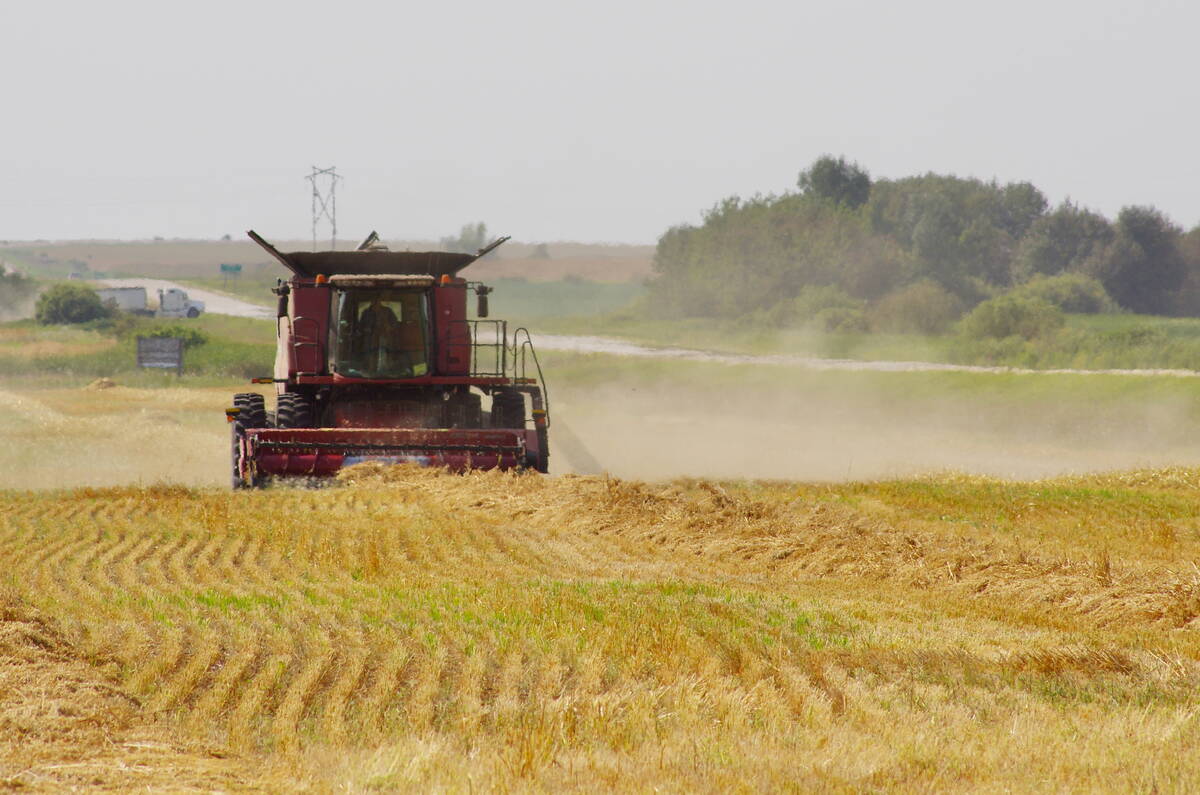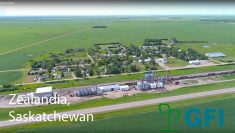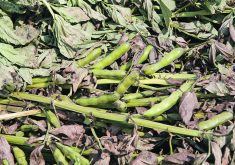Alberta’s agri-food processing sector is adding two pea processing facilities with the announcement of a $225 million wet fractionation plant planned for Strathmore and the opening of a testing facility in Lethbridge.
The Phyto Organix plant in Strathmore is being touted as the largest single private investment in the town of nearly 15,000 people and is anticipated to provide 80 permanent and 250 temporary construction jobs and process 40,000 tonnes of yellow peas annually.
Phyto Organix founder and president Chris Theal said the plant will swallow up a good portion of the 200,000 tonnes of peas grown annually around Strathmore and is part of the company’s goal to make the plant a net-zero facility.
Read Also

Herbicide resistance sprouts in Manitoba’s wild oats
Farmers across Manitoba this fall are gearing up for the latest salvo in what, for many, has become a longtime battle to beat out wild oats.
“I think where things really materialized with Strathmore is the shared view on sustainability and what one of these fractionation plants can look like and do from an environmental standpoint,” said Theal.
One of the markets the plant will target is for alternative chicken and dairy products.
It’s something that Theal said Phyto Organix will be able to do in its processing, which will not only pull up to 90 percent of the protein from the pea but also address the sensory issues such as the yellow hue of the final product.
“This is a very white, off-white protein isolate. And, as much as it has its applications in the traditional alternative red-meat market, the interest level is very high for the white meat alternatives in chicken and fish and definitely in the dairy market,” he said.
The Strathmore plant is just one pea processing facility recently announced in Alberta, coming on the heels of the ground breaking for a $100 million plant in Bowden last fall and days before PIP International planned to mark the opening of a $20 million pilot pea plant in Lethbridge.
Theal said with Alberta producing up to 40 percent of Canadian yellow peas, it makes sense to locate new facilities within the province.
“Literally 95 percent of yellow peas we produce in Alberta is exported as raw product to China and Bangladesh,” said Theal. “When you look at the resource endowment and the incentives in place by all layers of government to promote value added agri-business investment, all of that lines up to meet what is growing demand in the alternative protein space.”
The Strathmore and Lethbridge facilities have been able to access $1 million in funding through the federal-provincial joint Canadian Agriculture Partnership program.
The Lethbridge pea processing plant converted the former Coulee Brewing building into a commercialized processing facility for testing PIP’s extraction technology. A second phase is slated to fully build out a $150 million plant starting later this year.
While stock prices for meat alternative companies have been sagging of late, Theal said there continues to be demand for the product.
“You still have a larger part of that market growing. It’s natural it will start slowing its growth rate as it gets to critical mass,” he said.
With at best four currently operating wet fractionation facilities in North America, Theal predicted the increase in pea processing capacity will see higher demand for the crop from its current 340,000 tonnes annually to more than a million in the next decade.


















